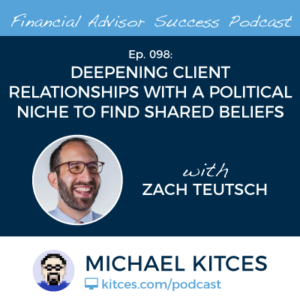Enjoy the current installment of "weekend reading for financial planners" – this week's edition kicks off with the fascinating news that #4 independent broker-dealer Commonwealth Financial is launching a standalone RIA services division, not just to service its sizable base of dual-registered advisors but a growing segment who have dropped their FINRA licenses altogether... but want to stay with the broker-dealer anyway for their non-broker-dealer RIA support services instead, as the brokerage industry increasingly reinvents itself for a more RIA-fiduciary-centric future!
Also in the news this week is the news that Interactive Brokers is scaling up its RIA services division (at least for RIAs that are still primarily in the business of actively managing client portfolios and want ultra-low trading costs), and the announcement that Edelman Financial Engines is launching a new RIA custody relationship with Trust Company of America now that the latter is part of E-Trade... to get access to a soon-to-be-launched (and likely-to-be-lucrative) E-Trade Advisor Network as E-Trade mimics the successful advisor networks of Schwab, Fidelity, and TD Ameritrade (at least, for the subset of advisors who can participate).
From there, we have a number of investment-related articles this week, including a look at how advisory firms are choosing their investments these days (hint: it's all about fees, performance, and brand trust), a Morningstar highlight of Vanguard's TIPS fund as CPI slowly but steadily starts to rise, and a look at how the growing number of firms beginning to automatically convert their C-shares to A-shares after 7-10 years may itself accelerate firms to transition to the advisory model to maintain their revenue (for which the end of the year is a good time to take a fresh look at the advisor's own book of clients still holding C-shares). Also in the discussion of investments this week is a look at the "good" that Wall Street does accomplish, how to handle the situation when a couple doesn't align on their risk tolerance, and why webinars can be a particularly effective method to reach (lots of) clients in times of market volatility.
We wrap up with three interesting articles, all around the theme of pricing model innovation amongst financial advisors: the first highlights a new Simon-Kucher study on advisory firm pricing models that finds it's not actually so difficult to serve Millennials profitably... it just requires not using the AUM model and shifting to a more direct fee-for-service model instead; the second looks at some of the caveats of shifting to a flat-fee model, and how to build in "stabilizers" to ensure that the advisor/client relationship doesn't get too out of whack; and the last is a fascinating exploring of the "Good-Better-Best" approach to pricing models, where businesses offer three tiers and empower consumers to choose which they want for themselves.
Enjoy the "light" reading!

 Welcome back to the 98th episode of the Financial Advisor Success!
Welcome back to the 98th episode of the Financial Advisor Success! Welcome back to the 97th episode of the Financial Advisor Success podcast!
Welcome back to the 97th episode of the Financial Advisor Success podcast!
